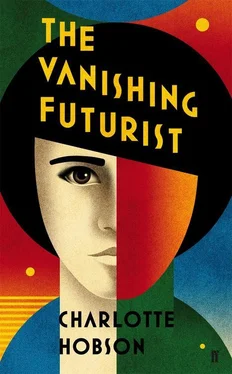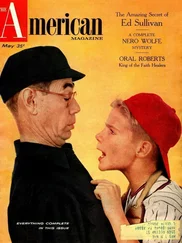Long before the Revolution Slavkin was thinking how design could improve people’s lives. He invented steam-powered domestic appliances to ease the burdens of housework and laundry. He imagined multi-purpose objects for urban life – unbreakable rubber crockery sets that you could fold together and use as a pillow; a portable shower-bath; a telescopic hat with a telescopic feather that packed away as flat as a piece of paper; a kit for a ceramic stove made of 150 interlocking pieces; spectacles with different-coloured, slot-in lenses, depending on how you wished to see the world that day.
He was not, at first, a popular addition to Gagarinsky Lane. Sonya made it clear that she found Slavkin uncouth, while Anna Vladimirovna claimed his ‘village voice’ gave her headaches. The servants were upset by the way he crammed his room with junk for his inventions and insisted on doing his own laundry, which dripped morosely over the nursery bath.
The loyal Pasha, however, wouldn’t hear a word said against his friend. He teased Sonya and Anna Vladimirovna about their attitude, which he claimed was a medical condition, Snobosis. The two young men were inseparable, arriving at the dinner table in the middle of a conversation, too intent to notice what they were eating; sent on an errand, they would be found halfway up the stairs, hours later, still embroiled in the same debate. It was Pasha who gave Nikita the nickname Camel (legs and eyelashes, he explained), although he also described Nikita as a mythical creature – ‘half Moses and half the camel he rode on, with a heart made entirely of schenki pushistiye – little fluffy puppies’.
* * *
Those evenings, those three long pre-Revolutionary years with the Kobelevs seem almost as distant now, as mysterious and poignant as the jewel-rich illuminations in a Book of Hours – glimpses of a world so far removed from my present existence (the Formica tabletop on which I spread out the contents of my boxes from the attic, the two-bar electric fire at which I warm my old lady’s hands, my solitude) it seems quite incredible to me that I ever experienced it.
As I read my letters I strain to catch again a whiff of the stuffy, overheated air of Mr Kobelev’s dark-green study, lit by the rosy glow of the large fringed brass lamps and the dark glitter of the wall sconces; his ethnographic collection spread over every surface: shamans’ drums, Chuvash jewellery, painted wooden figures, little bronze stags; the pale glimmer of the stove and the step at its base where Liza and Dima perched with the puppy Frank sprawled at their feet; and in the centre of the room, the great vessel of the high-backed red divan, crammed with shining, excitable faces, shouting each other down… Slavkin, still just an unknown student, showing us his new inventions, one after the other: the Electric Housemaid, the Automatic Carpet Beater, the flat-pack hats; billows of smoke hovering in the light, shrouding Mr Kobelev’s expression, and Mamzelle, the old governess, smiling timidly, on the edge of things; music cranked out of the gramophone, and me at the samovar – dark-haired, pale, with serious grey eyes – still a little shy, frowning in concentration as I add the hot water… ‘No, no, too weak, girl!’ exclaims Anna Vladimirovna, poking me with her lorgnettes, and Mr Kobelev’s exasperated response, ‘My dear aunt, you’ll tan yourself like a saddle.’
Those three years were my university. At home, for all my minor rebellions, I had never dreamt of challenging my parents’ articles of faith. Conversation consisted of a paternal monologue, broken occasionally by murmurs of agreement from the rest of the family. Any note of discord roused my father to spittle-laden fury. In Moscow I discovered a household where the most absurd and opposing views could be voiced, disagreed with, argued over or renounced without any tempers lost or touchy Chapel gods invoked.
‘Sing,’ Mr Kobelev liked to say. ‘Every bird has a song.’
Pasha, who reminded me of my brothers, said, ‘Yes, Miss Gerty, I’m sure you have the voice of a nightingale.’
‘Do stop it, Pasha, or I will sing, and then you’ll regret it.’
I listened, read and thought, and began to wonder in particular about the nasty old man by whom my parents set so much store, who trifled with his followers’ affections (poor Job, poor Abraham); who set up Adam and Eve to fail and then bequeathed the pain of childbirth on all women in memory of Eve’s misdemeanour; who allowed – no, planned – for his own son to be tortured.
Meanwhile Liza and Dima grew up and flourished; I was proud of them. In the autumn of 1915 Liza, and a year later Dima, began to study at secondary school (in Russia called the Gymnasium). Travel to Britain was still out of the question, however, so I stayed on with the Kobelevs, as all their former employees appeared to do. I caught a tram each morning up the Boulevard Ring to a school on Tverskaya Street where I gave English lessons, and walked the children back from school in the afternoon.
The post became erratic, and communication with my parents infrequent. What, after all, had I left behind in Britain? My brothers had moved away, and all that awaited me in Truro was my father, who seemed to dislike me, and my mother, who thought me unnatural. One sunny morning in 1916 I went to the hairdresser’s and asked her to cut off my dark plaits; I remember the sensation of release as they fell to the floor. I had grown a little plumper in Russia, a fact that Nyanya was always complimenting me on. ‘How pretty you are, Mees Gerty, now you’ve filled out!’ At home, my mother used to bewail, unanswerably, ‘What are we to do with you?’ In Moscow I felt I’d found a reply for her.
Then in November 1916 I received a letter through the diplomatic bag. I have it here – a black-rimmed envelope addressed care of the Foreign Office, King Charles Street, London, in my father’s dark, decisive hand.
‘Dear Gertrude,’ wrote my father.
It is with profound sadness that I write to tell you that your brother Edmund has been killed in action on the Somme, at Ancre, on the night of the 16th–17th October. His Commanding Officer tells me he fought bravely. Of course we expected nothing less. He is now at peace with the Lord. We will hold a prayer meeting at the Chapel in his memory and I will pray for you then. I trust that you are safe and well, it is only a pity you are so far from your family at a time when your mother needs you.
Yr. affec. Father, S. M. Freely
I suppose it was unfair of me to blame my parents for Edmund’s death. Even if they did encourage him to join up, they had done no more than millions of other families. And yet as I re-read that letter now I feel a rush of the rage I harboured against them for years. That nasty little dig: ‘It is only a pity…’ The sanctimonious: ‘I will pray for you then.’ Those phrases released me from my filial duty. I never wanted to see them again. I ripped up their unread letters. I hid in my room to cry, too angry to accept sympathy. I kept dreaming of my poor dear little Ed, my poor boy, how I’d abandoned him. Fighting sleep, I lay in bed making inventories of every detail about him: his babyish cheeks; how he blinked when he was excited, rapidly, trying to get the words out; his fine, clean, squarish hands with large pale moons on each nail; the way he ducked his head a little under too many direct questions – each day feeling him slipping away from me, solidifying into a few stock images.
‘All true Socialists take a defeatist position,’ said Pasha that winter – the first time I had heard the term. ‘This war was inevitable, a result of Empire. Colonial policies produce an excess of weapons, raw materials and manufactured produce, then they need a war to soak up the glut and keep the prices high. Under this system, war is not only simple – the underclass fights it for them – but essential.’
Читать дальше





![Майкл Муркок - Спящая волшебница / The Sleeping Sorceress [= Участь Белого Волка, Рыцарь Хаоса, The Vanishing Tower]](/books/327544/majkl-murkok-spyachaya-volshebnica-the-sleeping-sorc-thumb.webp)






